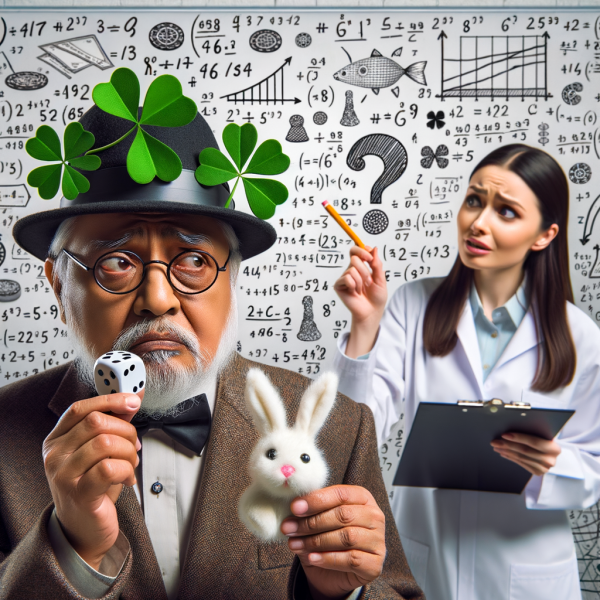Understanding the Concept of Lucky Numbers in Gambling
The allure of lucky numbers has been a fundamental aspect of gambling culture for centuries. Many gamblers hold personal beliefs about numbers that bring them luck, often rooted in cultural traditions, superstitions, or personal experiences. In casinos, players often select numbers based on memorable events, such as birthdays or anniversaries, believing these numbers can influence their chances of winning. This belief is not just anecdotal; entire systems of betting have been formed around the idea of lucky numbers.
In various cultures, certain numbers are revered for their auspiciousness. For example, in Chinese culture, the number eight is considered particularly lucky due to its phonetic resemblance to the word for wealth. On the contrary, the number four is often avoided as it sounds like the word for death. These cultural interpretations can influence gambling behaviors significantly, leading players to favor specific numbers in games like roulette or lotteries.
Casinos have capitalized on the concept of lucky numbers, integrating them into their marketing strategies. For instance, special promotions might encourage players to bet on specific numbers deemed “lucky.” This not only enhances the gambling experience but also fosters a deeper emotional connection between the player and the game. The excitement of hitting a “lucky” number can create a more engaging atmosphere, contributing to the overall allure of the casino.
Ultimately, understanding the concept of lucky numbers in gambling goes beyond mere superstition. It encapsulates a complex interplay of personal beliefs, cultural influences, and casino practices that shape the gambling landscape. While many players swear by their lucky numbers, these beliefs prompt a deeper inquiry into the psychological and statistical realities underlying the game.
The Psychology Behind Luck and Gambling Behavior
The psychology of luck plays a crucial role in gambling behavior. Gamblers often attribute outcomes to their lucky numbers, reinforcing a cognitive bias known as the “gambler’s fallacy.” This fallacy occurs when individuals believe that past events can influence future outcomes in random games like roulette or slots. For example, a player may think that because a particular number hasn’t been drawn recently, it’s “due” to come up soon.
Emotions are also at the forefront of gambling decisions. The thrill of anticipation and the adrenaline rush experienced when betting on a lucky number can heighten the overall gambling experience. Players may feel an emotional attachment to these numbers, which can lead to repeated betting patterns and increased spending. The interplay of emotions and belief in luck can create a vicious cycle, where players continue to gamble despite unfavorable outcomes.
Social factors also affect perceptions of lucky numbers. Gamblers often share their experiences with friends or online communities, creating a collective belief system around certain numbers. Success stories, whether real or fabricated, can propagate the idea that lucky numbers have a tangible impact on gambling outcomes. This social reinforcement can lead to an increased investment in particular numbers, further solidifying their status as “lucky.”
Furthermore, the cognitive dissonance experienced by gamblers can lead them to selectively remember wins associated with their lucky numbers while ignoring losses. This selective memory reinforces their belief in luck, perpetuating the cycle of betting on these numbers. Understanding the psychology behind these behaviors is essential for both players and casino operators, as it reveals the emotional and cognitive factors that shape gambling experiences.
Statistical Analysis: Do Lucky Numbers Actually Work?
To critically assess the efficacy of lucky numbers, one must delve into statistical analysis. The reality of gambling outcomes is governed by probability and chance, where each outcome is independent of previous results. In games like roulette, the odds remain static regardless of the number of times a particular number has previously won or lost. This means that betting on lucky numbers does not alter the inherent probabilities of the game.
Research has shown that lucky numbers do not provide any statistical advantage. For example, in a study analyzing thousands of roulette spins, researchers found that each number had an equal chance of being selected, with no correlation between historical outcomes and future results. Despite the emotional weight players may attribute to their lucky numbers, statistical evidence undermines the belief that some numbers are inherently “luckier” than others.
A helpful table summarizing the odds of hitting a lucky number in various casino games may clarify this concept:
| Game | Probability of Hitting a Specific Number | Explanation |
|---|---|---|
| Roulette | 1 in 37 (European) / 1 in 38 (American) | Each number has equal odds, independent of prior outcomes. |
| Lottery | Varies by game | Generally, odds are very low, regardless of chosen numbers. |
| Blackjack | 1 in 52 (per card) | The deck reshuffles, making previous cards irrelevant. |
| Slots | Varies by machine | Random number generators ensure outcomes are independent. |
The statistical analysis indicates that lucky numbers have no measurable impact on gambling success. Players must recognize that despite the emotional and psychological allure of certain numbers, the odds remain unchanged. This understanding can lead to more informed choices and a healthier approach to gambling.
Case Studies: Success Stories or Pure Coincidence?
Examining case studies of individuals who claim success with lucky numbers often reveals a complex blend of coincidence and cognitive bias. Many stories of “lucky” wins are celebrated and shared, creating a narrative that reinforces the belief in lucky numbers. However, these anecdotes frequently lack rigorous statistical backing, making them more mythical than factual.
One well-publicized case involved a man who won a large lottery jackpot after consistently playing the same set of numbers over a decade. While this story garnered significant attention, it is essential to consider the sheer improbability of such an event. Statistically, the odds of winning a lottery jackpot are astronomically low, regardless of the numbers chosen. The man’s win, while exciting, does not establish a causal relationship between his “lucky” numbers and his success.
Conversely, numerous gamblers have lost significant sums while betting on their lucky numbers. These stories are often less publicized, resulting in a skewed perception of luck in gambling. The selective reporting of success stories can perpetuate a cycle of belief in lucky numbers, overshadowing the reality that the majority of gamblers do not experience consistent wins.
Ultimately, while individual case studies may present compelling narratives, they should not overshadow the statistical reality that luck is inherently unpredictable. The allure of lucky numbers may persist, but a closer examination reveals that personal stories often arise from coincidence rather than a true understanding of probability and chance.
The Role of Casino Marketing in Promoting Lucky Numbers
Casino marketing strategies often leverage the concept of lucky numbers to attract players and enhance engagement. Promotions and campaigns often highlight specific numbers, presenting them as “lucky” to entice gamblers. This marketing tactic capitalizes on the psychological aspects of luck, drawing players in with promises of favorable outcomes tied to chosen numbers.
Casinos frequently host events centered around lucky numbers, such as themed nights where players can bet on specific numbers with enhanced payouts. These marketing strategies create a dynamic where players feel more invested in the gaming experience, often leading to increased spending. By tapping into the emotional significance of luck, casinos enhance the thrill of gambling and create a more engaging environment for players.
Additionally, online casinos often utilize algorithms that present players with personalized recommendations based on their betting history, including favored numbers. This tailored approach can reinforce the belief in lucky numbers, as players see their past choices highlighted during gameplay. Such strategies keep players returning for more, further embedding the concept of luck into the gambling experience.
However, it is crucial for players to recognize the underlying intentions of these marketing strategies. While they can enhance the entertainment value of gambling, they can also lead to irrational behaviors and increased financial risk. Understanding the role of casino marketing in promoting lucky numbers can empower players to make more informed decisions and approach gambling with a critical mindset.
Separating Myth from Reality: Making Informed Choices
As players navigate the world of casinos, it’s vital to separate myth from reality regarding lucky numbers. While the emotional connection to certain numbers can enhance the enjoyment of gambling, players must acknowledge that luck does not influence outcomes in games governed by chance. This understanding is crucial for maintaining a healthy gambling experience and avoiding potential pitfalls.
Educating oneself about the odds, probabilities, and statistical realities of different games is the first step in making informed choices. Players should recognize that every bet is independent, and past outcomes do not dictate future results. This rational approach will help players set realistic expectations and avoid the gambler’s fallacy.
Moreover, players should consider their financial limits and set budgets for gambling sessions. Emphasizing responsible gambling practices can mitigate the risks tied to betting on lucky numbers, allowing players to enjoy the thrill without succumbing to excessive spending. This conscious approach ensures that gambling remains a form of entertainment rather than a source of stress or financial burden.
Ultimately, separating myth from reality empowers individuals to engage with gambling in a more informed and responsible manner. Understanding the limitations of lucky numbers and the nature of chance allows players to enjoy the process while minimizing potential negative consequences.
Q&A Section
Q: Are lucky numbers real or just a myth?
A: Lucky numbers are largely a cultural and psychological concept; statistically, they do not influence gambling outcomes.
Q: Can playing lucky numbers lead to consistent wins?
A: No, each outcome in games of chance is independent, and betting on lucky numbers does not provide a statistical advantage.
Q: How should I approach my gambling strategies?
A: Focus on understanding the odds and probabilities of the games you play, set budgets, and avoid relying solely on lucky numbers.
Q: Are casinos manipulating players through lucky number promotions?
A: While casinos use marketing strategies to promote lucky numbers, it’s essential for players to recognize the underlying randomness of gambling outcomes.
Q: How can I enjoy gambling responsibly?
A: Educate yourself about the games, set limits on spending, and approach gambling as a form of entertainment rather than a way to make money.






